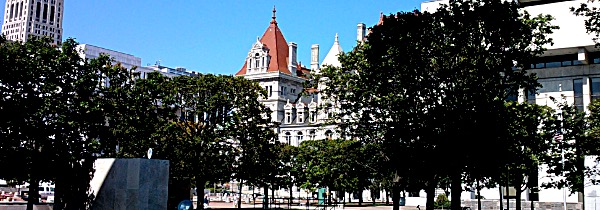- By New York State Comptroller's Office
- Business & Technology
 Print
Print 
The state collected over $160 million in drug rebates under the state's Medicaid Drug Rebate Program after correcting problems identified by auditors from the office of State Comptroller Thomas P. DiNapoli, according to a pair of audits released last Friday. Auditors also found that more than $78 million in rebates have not been submitted to drug manufacturers, but could still be collected by the state Department of Health (DOH).
"New York has been leaving millions of dollars in drug rebates on the table," DiNapoli said. "The state Department of Health deserves credit for taking steps to correct the errors and inadequate procedures my auditors found and recoup the money that rightfully belongs to taxpayers."
In 1990, Congress created the Medicaid Drug Rebate Program to reduce state and federal expenditures for Medicaid prescription costs. Since January 1991, New York state has been able to recover a portion of Medicaid prescription drug costs by requesting rebates from drug manufacturers. In 1992, Congress created the 340B Drug Pricing Program. The program requires drug makers to sell prescription drugs at a discount to eligible health care organizations. Federal law prohibits Medicaid rebates on drugs sold at the already discounted 340B price. Therefore, to collect allowable rebates and avoid duplicate discounts, states must accurately exclude 340B drugs from the Medicaid Drug Rebate Program. The 340B Program covers certain outpatient drugs.
In the first auditreleased today, DiNapoli's auditors found DOH incorrectly identified 13 Medicaid providers as 340B providers. As a result, the 13 providers' claims were excluded from the drug rebate process. The work of DiNapoli's auditors resulted in the identification of $10.7 million in rebates due from drug manufacturers. DOH sought collection of $4.7 million of the drug rebates before the audit concluded.
Auditors also pointed out an additional 26 providers DOH identified as 340B providers that were not on the official federal list of such providers. This misclassification led to an estimated $531,650 in potential rebates that could go uncollected. DOH agreed to review the discrepancies and seek rebates where appropriate.
DiNapoli recommended DOH:
- Review the remaining $6 million in drug rebates identified for the 13 providers and seek retroactive rebates where appropriate;
- Determine whether the $531,650 in drug rebates can be collected for the 26 providers who were not on the federal list and seek retroactive rebates where appropriate;
- Ensure that rebates from July 1, 2015 and thereafter (subsequent to the audit period) are appropriately claimed and collected for the providers identified, including the two providers with service locations that did not administer 340B drugs to Medicaid recipients; and
- Ensure providers properly identify 340B drugs. If errors are detected, confirm providers correct their submissions and retroactively invoice manufacturers for the corresponding rebates.
The second audit issued last Friday was a follow-up review to an initial auditreleased in February 2015. That audit determined DOH had not taken sufficient steps to maximize rebate collections on drugs dispensed to individuals enrolled in Medicaid managed care. As a result, DOH did not collect as much as $119.3 million in available rebates. In the follow-up report, auditors found DOH had made significant progress, having sought the collection of $159 million in rebates since the initial audit. However, as much as $72.4 million in rebates had not been invoiced, but could still be collected with additional efforts by DOH.
v13i26




